Inayah joined Blue Ventures Indonesia as a Fisheries and Data Technician in June 2023. Her role involves supporting local partners with data collection, analysis, and reporting. In her first blog, she talks about how the first shrimp stock assessment carried out in two coastal villages in Indragiri Hilir benefits the coastal communities and habitat conservation.
With its extensive mangrove ecosystems, the Indragiri Hilir area holds significant potential in intertidal fisheries, such as for shrimp and crab. Unfortunately, the alarming rate of deforestation across the province in the last decade has sparked concerns among local fishers: How can we protect these species and source of income for our community?
During my recent trip, I was captivated by the sprawling tapestry of mangroves, which blanket an area of roughly 127,000 hectares, stretching from the north to the south coast. However, Riau Province is also losing up to 2,000 hectares of mangrove forest each year and Indragiri Hilir is no exception.
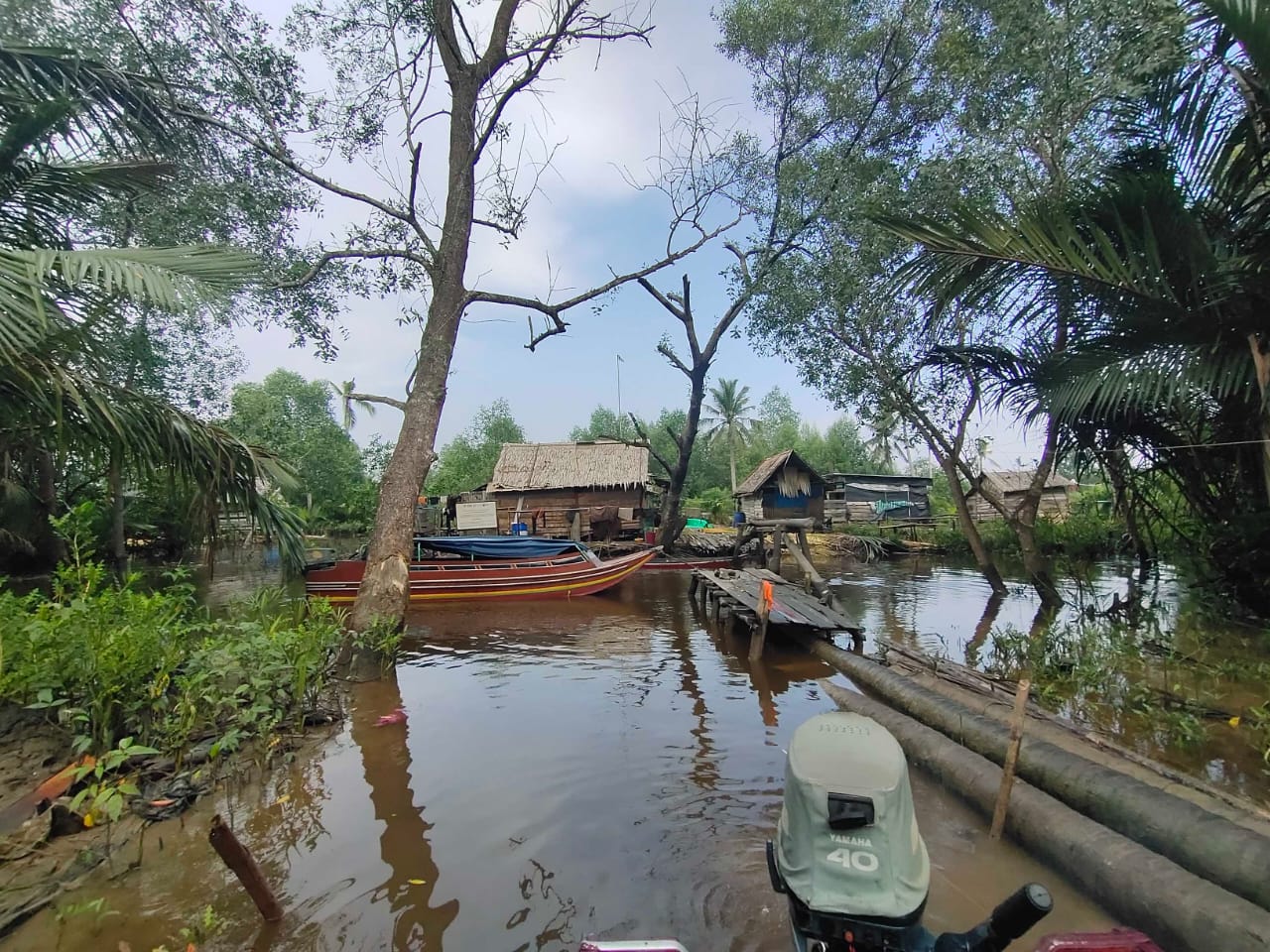
A traditional fishing village in Indragiri Hilir. Credit: Inayah | Blue Ventures
Throughout the generations, the residents of Sapat, Perigi Raja, and Igal villages whom I met in person have relied on catching shrimp and crabs as their source of livelihood. These crustaceans are not only traded in the traditional markets but also distributed to several exporting companies.
When out at sea, each fisher in Igal and Sapat could catch up to three kilograms of shrimp per day, which they sell for IDR 35,000 per kilogram. With 150 fishers in both villages, and in light of the ongoing environmental degradation, some have raised concerns that shrimp stocks may be depleted in the next 10 years.
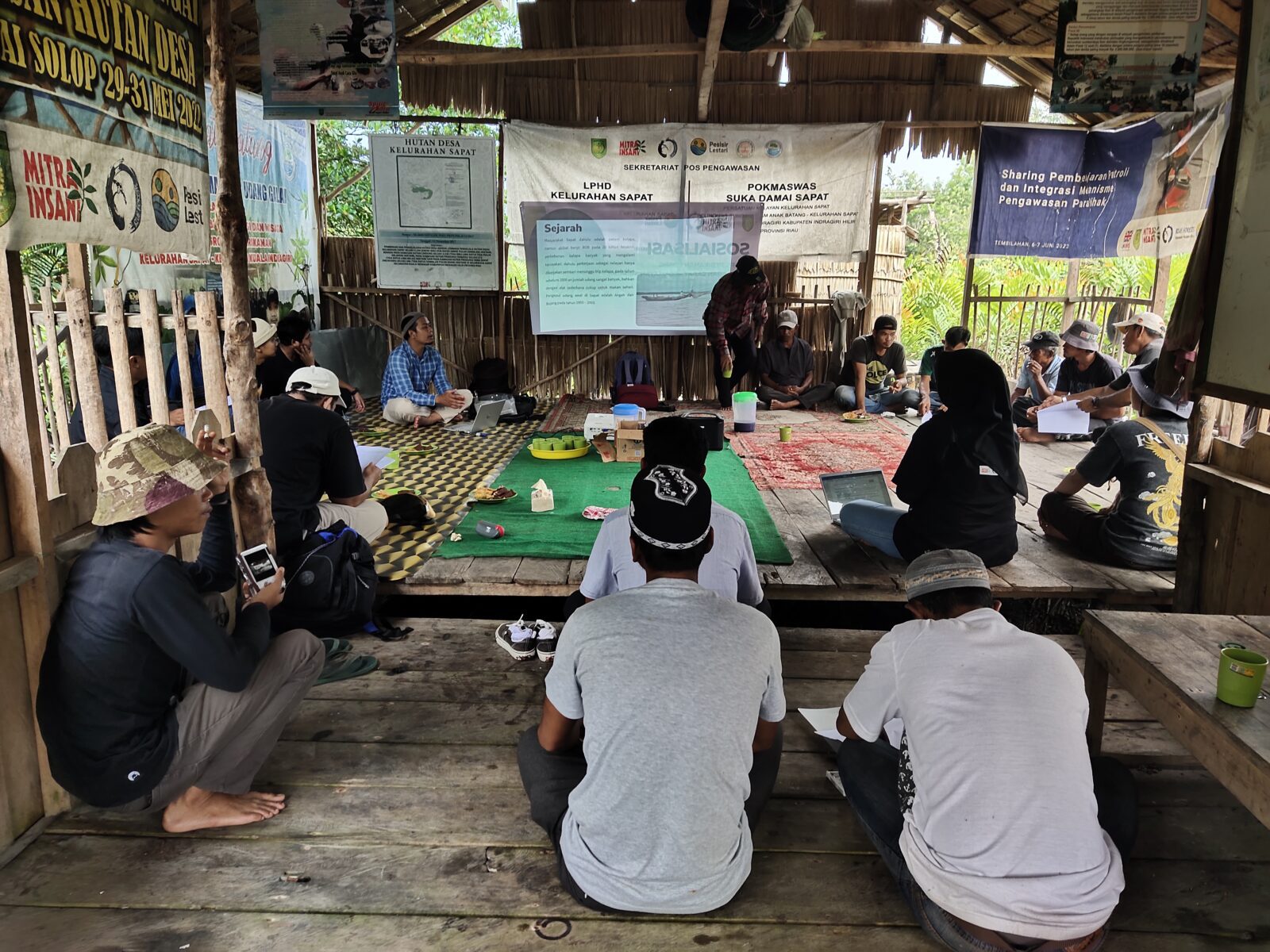
Community meeting and outreach in Sapat Village. Credit: Inayah | Blue Ventures
Andi Masrapi, a crab and shrimp collector in Sapat, has observed a decline in catches over the past few years. “In the past, every fisher used to catch at least five kilograms of shrimp, but gradually, the amount has been decreasing year by year,” he told me.
To protect the local economy and the environment, our collaborative partner, the Mitra Insani Foundation (YMI), initiated a data collection initiative for crab fisheries in Indragiri Hilir, with support from Blue Ventures. The programme’s effectiveness was further strengthened through the implementation of temporary closures in specific fishing grounds.
In response to the mounting concerns about the sustainability of shrimp fisheries, YMI proactively started data collection for shrimp this year. This endeavour commenced with an assessment in July, marking the first of its kind at the provincial level. I found the study particularly intriguing due to its unique nature.
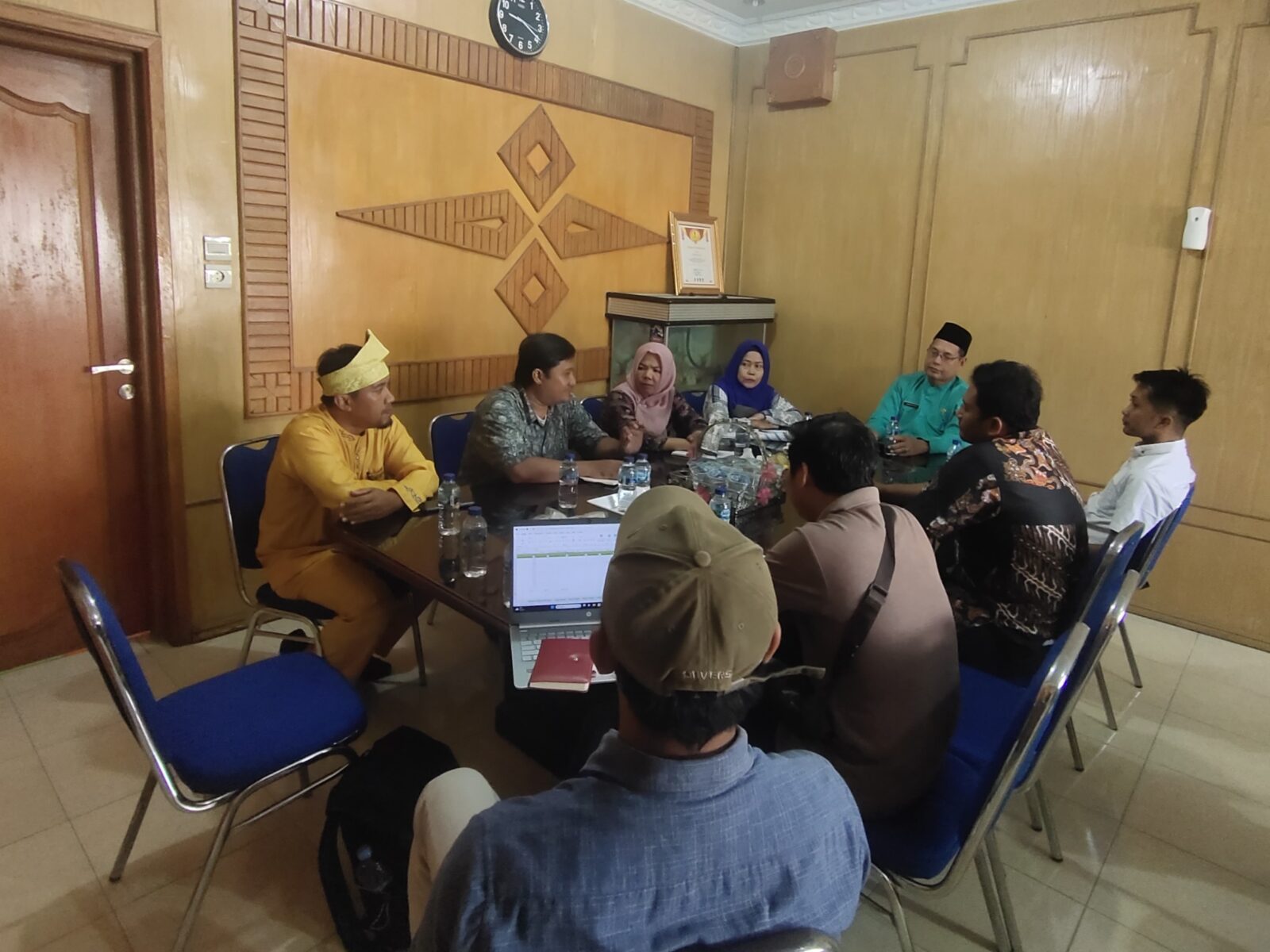
Discussion with fisheries stakeholders in Indragiri Hilir. Credit: Inayah | Blue Ventures
The study involved a fisheries profiling approach, with fishers in Sapat as target participants. Various topics were asked and discussed through in-depth interviews, including the history of shrimp fishers, their well-being, the fishing vessels and gears being used, designated fishing grounds, types of shrimp caught, and other details concerning the supply chain.
As a result, it is evident that the majority of shrimp fishers in Sapat typically concentrate on capturing target species that are naturally available during particular seasons, often using wooden boats. In terms of the targeted shrimp species, the dominant catches include udang tenggek (perch shrimp) and udang galah (prawns).
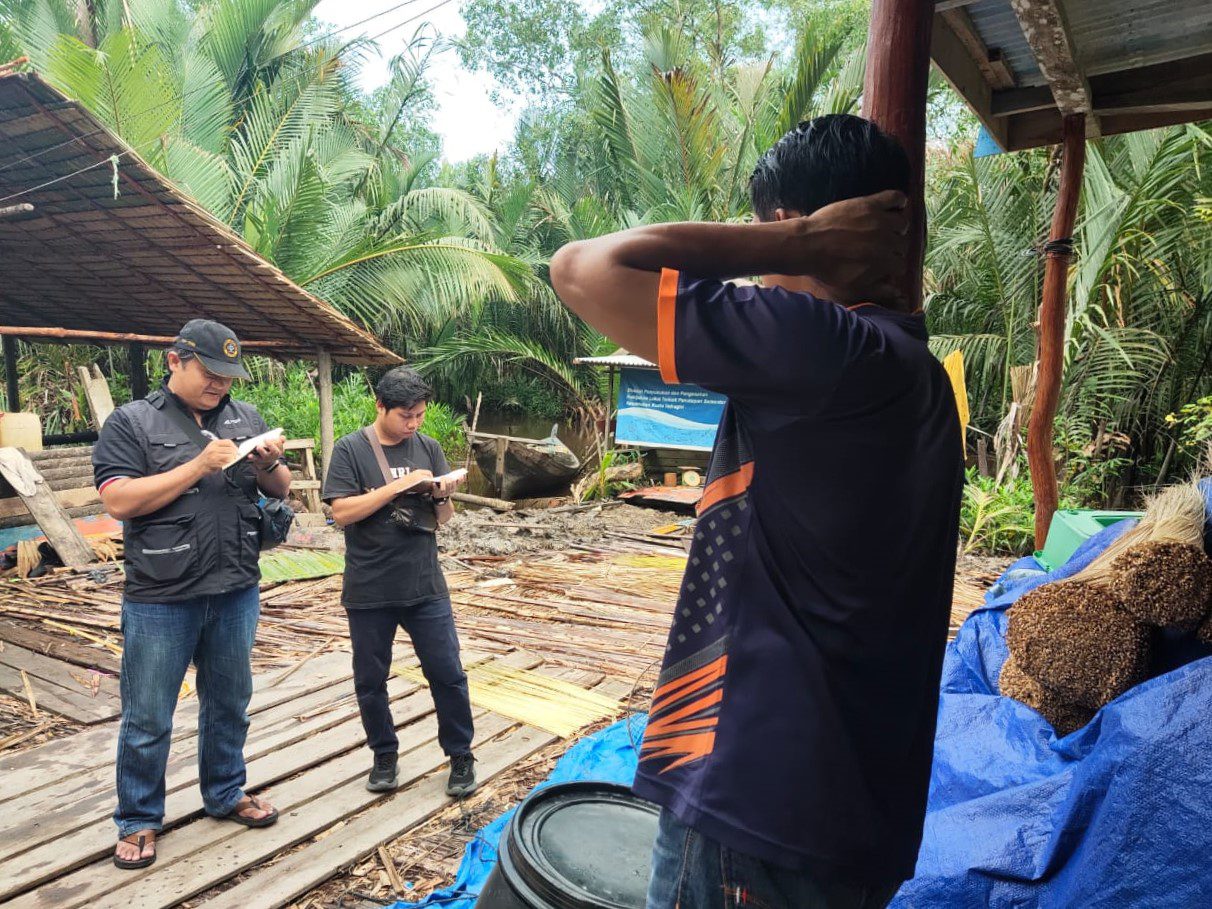
Interview with a local fish collector. Credit: Inayah | Blue Ventures
Their fishing gears used include sauk (fishing rake), sondong (mini trawl), and jaring (nets). Mini trawls can have detrimental effects on fish populations and their habitats. This particular fishing gear is likely to capture juvenile species, increase bycatch, damage the seafloor, and contribute to overfishing. It is also important to note that mini trawls can pose serious risks to the safety of fishers, as they may become entangled and potentially drown while using them.
While we may still lack precise data on the global shrimp population in Indragiri Hilir, the use of unsustainable fishing gear supports general concerns about the status of shrimp stocks in this area. Therefore, it is essential to establish and implement an appropriate fishery management system to ensure the sustainability of shrimp stocks in Indragiri Hilir.
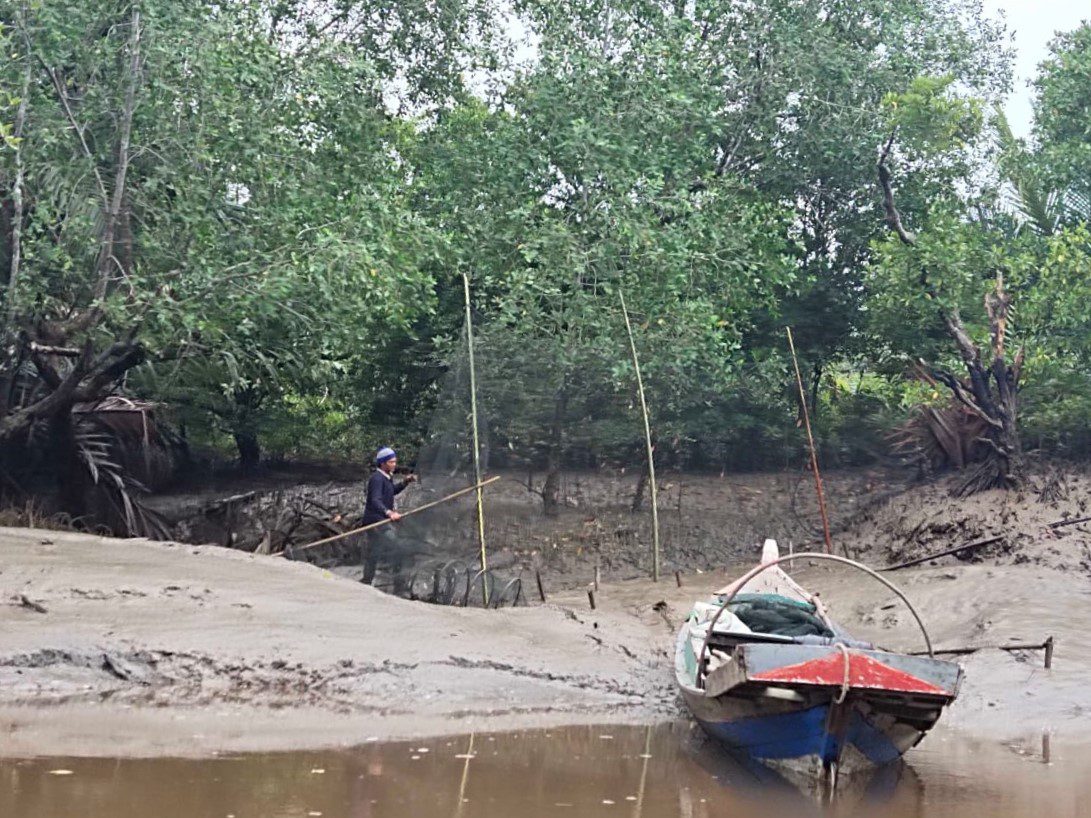
A small-scale fisher prepares his fishing gear. Credit: Inayah | Blue Ventures
To address this challenge, the fishing communities in Sapat, Perigi Raja, and Igal have come to a consensus to expand the temporary closure initiative and enhance the data collection process. In these areas, there are four well-frequented fishing grounds. Recently, the fishing community decided to close Trench 10, a water passage covering an area of around 1.9 kilometers, for a duration of three months. Following this closure, the system will be rotated to different fishing grounds, providing sufficient time for shrimp and crabs to reproduce and grow to a healthy size.
The results of this shrimp assessment marked an important starting point in developing the data collection method that YMI employs. Last August, YMI began data collection using a digital Kobo form, tailored in accordance with the assessment findings. Prior to this, their data collectors received training in using the Kobo form and the shrimp data collection methodology.
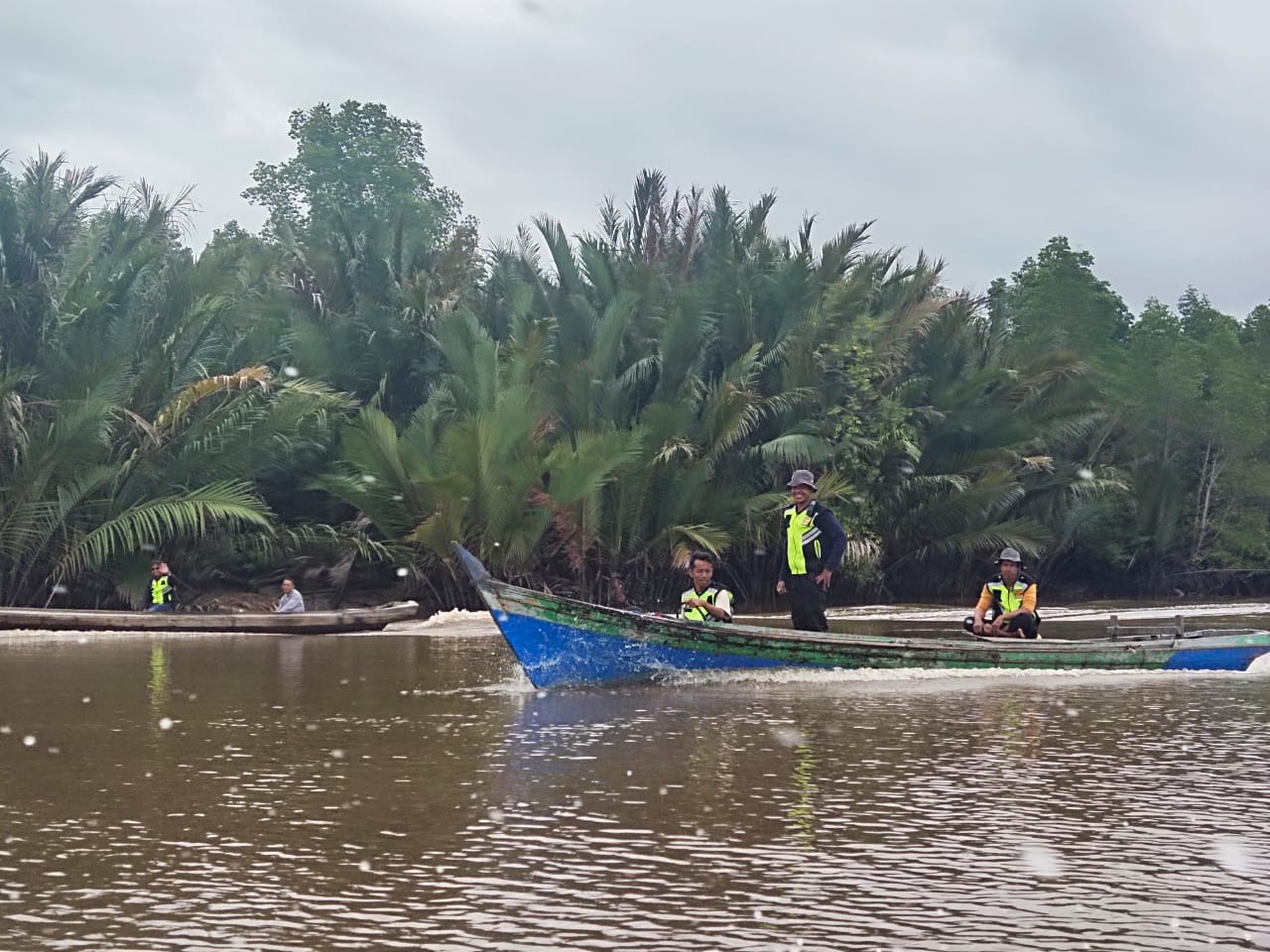
Local authorities monitor fishing grounds. Credit: Inayah | Blue Ventures
Gian Nofrianda Ilyas, the Field Coordinator for YMI, emphasised that this assessment serves as the foundation for gathering shrimp data in the assisted villages and mapping the support capacity of local stakeholders. He stated, “We aspire to establish a model for implementing temporary closures in shrimp fisheries based on data, which can be replicated in other locations.”
I take pride in being a member of Blue Ventures, an organisation that supports and advocates for a science-based approach to enhancing small-scale capture fisheries in coastal communities. By ensuring access to current and dependable data, together we empower these communities to comprehend the full potential of their fisheries. This, in turn, aids in establishing governance for fisheries that are not only environmentally sustainable but also equitable.
—————
This project has been supported by the UK Government’s International Climate Fund part of the UK commitment to developing countries to help them address the challenges presented by climate change and benefit from the opportunities.

